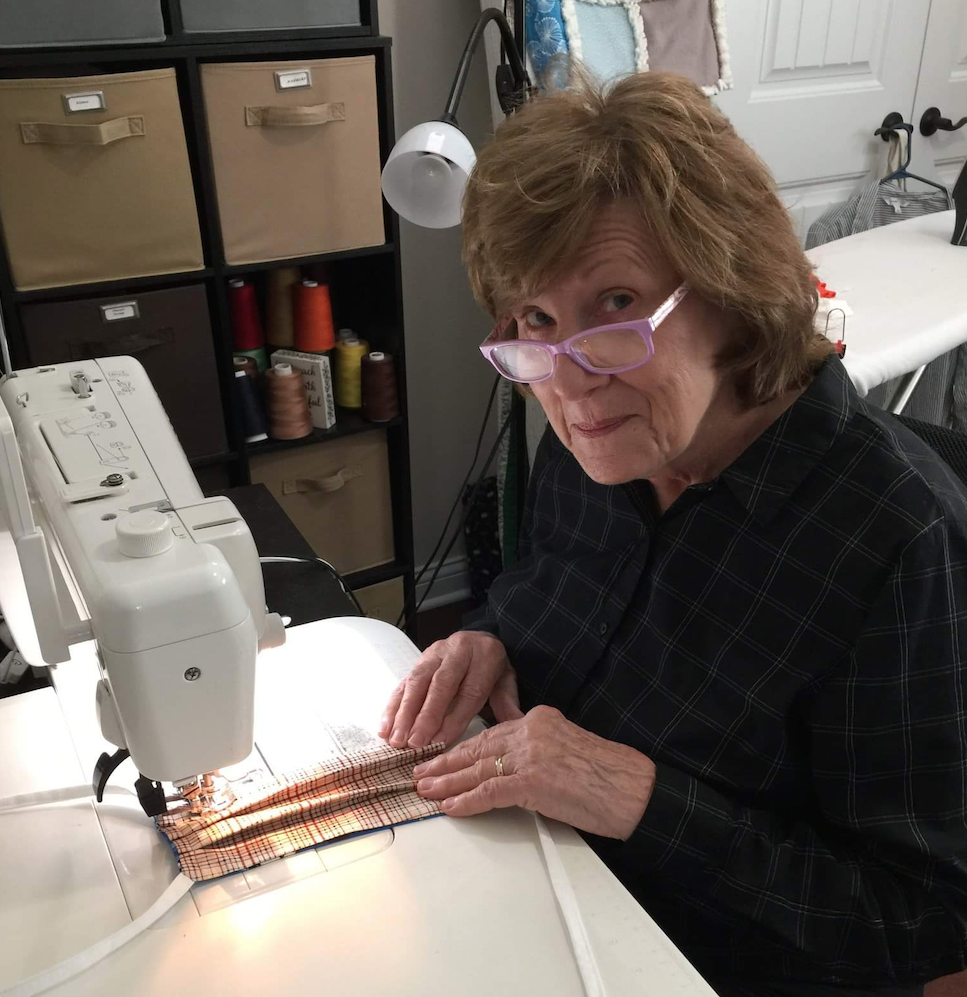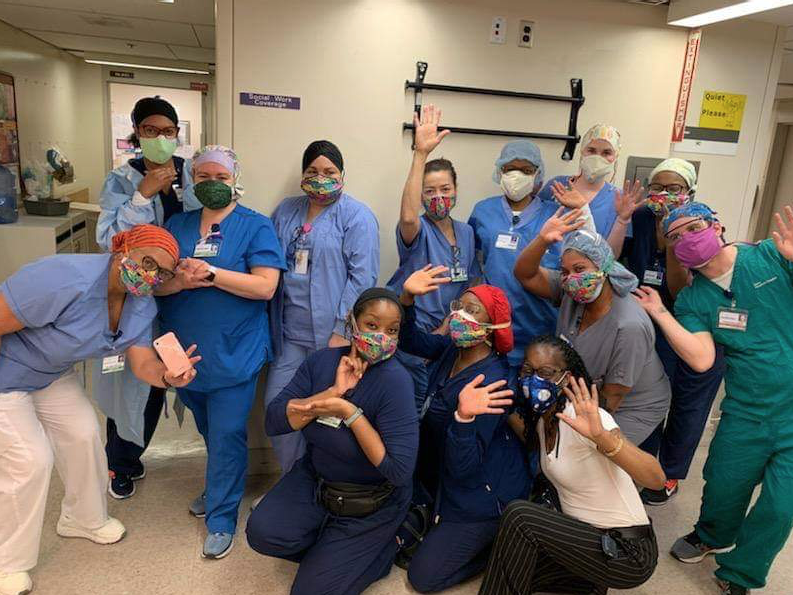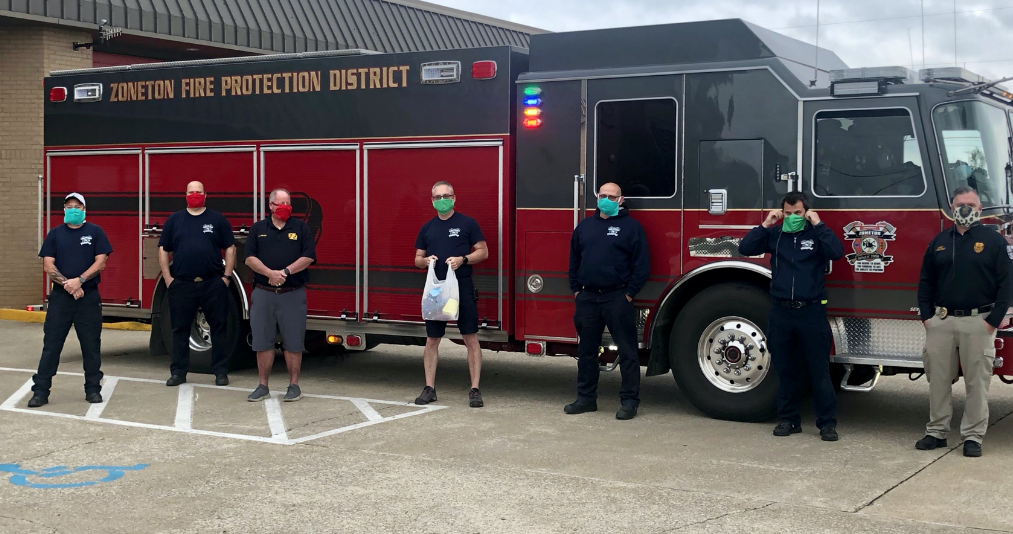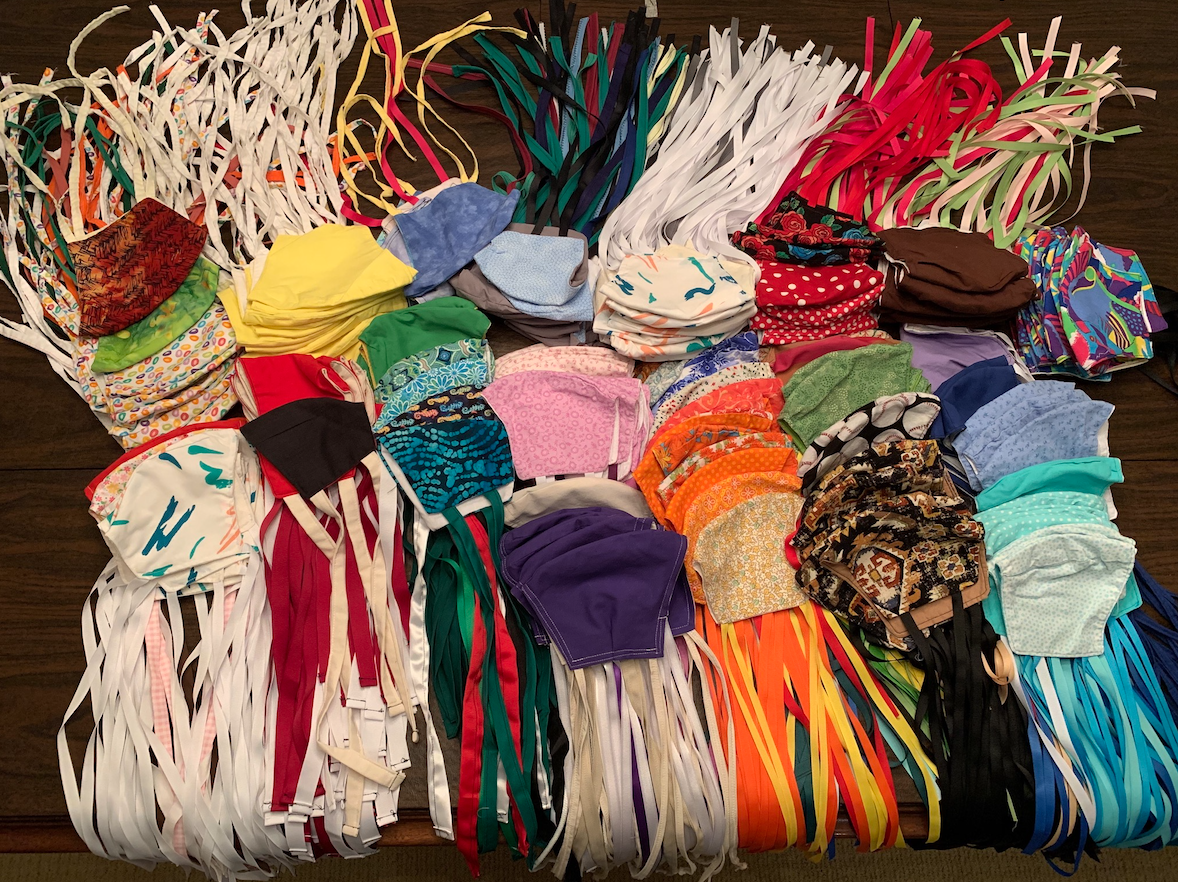 When the coronavirus made its way into Kentucky, team members from Hour of Need hit the ground running. Beginning with just a few individuals, the organization soon grew to include 200 volunteers.
When the coronavirus made its way into Kentucky, team members from Hour of Need hit the ground running. Beginning with just a few individuals, the organization soon grew to include 200 volunteers.
Hour of Need’s mission is to create and deliver do-it-yourself face masks for health care workers, first responders and essential-to-life public servants, free of charge.
Kentucky couple Kurt Pitzer and Kim Levin first came up with the idea for Hour of Need in March, when Kentucky Governor Andy Beshear announced a stay-at-home order to prevent the spread of coronavirus within the state.
Pitzer and Levin began doing research on different types of masks, and soon got Kathy Gahm involved.
“They started texting me that they had an idea,” Gahm said. “The next morning we hit the ground running.”
Gahm began purchasing supplies from Jo-Ann Fabrics and Crafts, starting with 100% cotton, solid-colored fabrics and elastic straps. Supplies were already limited at the store, and two days after her first visit, the Jo-Ann Fabrics staff closed the store.
Gahm then converted her dining room table into a mask-making area, and got to work.
Some of the first responders who received masks from Hour of Need were having issues with the elastic straps on the masks. In response, Hour of Need began using ribbon, but the ribbon soon ran out.
Seamstresses who had teamed up with Hour of Need then resorted to using excess fabric to construct straps for the masks.
Soon, Hour of Need began receiving hundreds of requests for masks from many individuals and organizations such as the Federal Bureau of Investigation, St. Matthews Fire Department, Louisville Metro Police Department, and even hospitals based in New York City.
The St. Matthews Fire Department had no masks until they contacted Hour of Need leaders.

As many as 63 seamstresses were volunteering for Hour of Need at one point, although not all were actively sewing at one time, and 10 drivers were active at the highest point of production.
Hour of Need produced an estimated 18,000 masks by mid-June, having delivered to more than 100 organizations, hospitals, health care facilities, nursing homes, homeless outreach organizations and more, according to the official website.
Gahm says some seamstresses were using the opportunity to make masks and help out the community as a way to cope with the pandemic.
“We were an outreach, checking in on each other’s well being, it was very touching,” she says. “It was really touching to know [the seamstresses’] stories.”
Although requests have declined, the Hour of Need team will continue making masks for the public.
Hour of Need receives gratitude from the community in various forms, and has received many notes thanking them for masks.
Lorraine Venberg, an original seamstress for Hour of Need and previous lead costume designer with the Actors Theatre of Louisville, says she felt like she was contributing to the community through the organization.
“It’s grown exponentially – I’m amazed all the time when people say they saw the web site and they think it’s so great,” Venberg says.
Venberg adds that there was a specific production method she used to produce masks promptly.
“I could cut out 50 masks pretty efficiently,” she says. “I got so many masks sewn that way.”

Community feedback has been very important for the Hour of Need team. Health care workers have provided feedback on the type of masks that would work best for them, and the organization has made different types of masks depending on the needs of the person or group making a request.
“People in health care wanted masks that weren’t elastic because they were digging in the back of their head,” Venberg says. “They preferred the ones with the ties on the back. If they were wearing our masks over the N95 masks, they would protect the N95 mask with the right sized filter for viruses.”
Levin says being involved with Hour of Need has been a motivating experience.
“To be connected to this human web of positivity, and desire to be connected and to help other people, has been incredibly motivating and incredibly powerful,” Levin says. “It has also helped to normalize the use of masks in this community. That has been the most beautiful and empowering part of it.”
Molly Schroering, a recent graduate of the University of Louisville, was the original logistics volunteer and driver for Hour of Need. She says she never thought the organization would grow to be this big.
“I’m very glad it did,” she says. “I didn’t know we would have a whole web site and be on the news.”
Schroering’s job within the organization is to coordinate volunteer drivers with volunteer seamstresses. She uses a Google spreadsheet to coordinate runs for the day, which includes mask drop-offs and pickups.
In the beginning when she was the only driver, Schroering logged almost 1,000 miles on her car picking up and dropping off masks.
“I think the most empowering part of this is how quickly we got everything together,” she says. “We didn’t have to beg for volunteers. Once we got enough volunteers it started running very smoothly.”
Schroering says another empowering aspect of the project is the appreciation the team has felt from mask recipients.
“People are so thankful – you can see it in their eyes,” she says.
Hour of Need leaders are accepting monetary donations through their Facebook page and official website, hourofneed.org. Contributions are tax-deductible if submitted by check and made out to the University of Louisville Foundation.







Comments 1